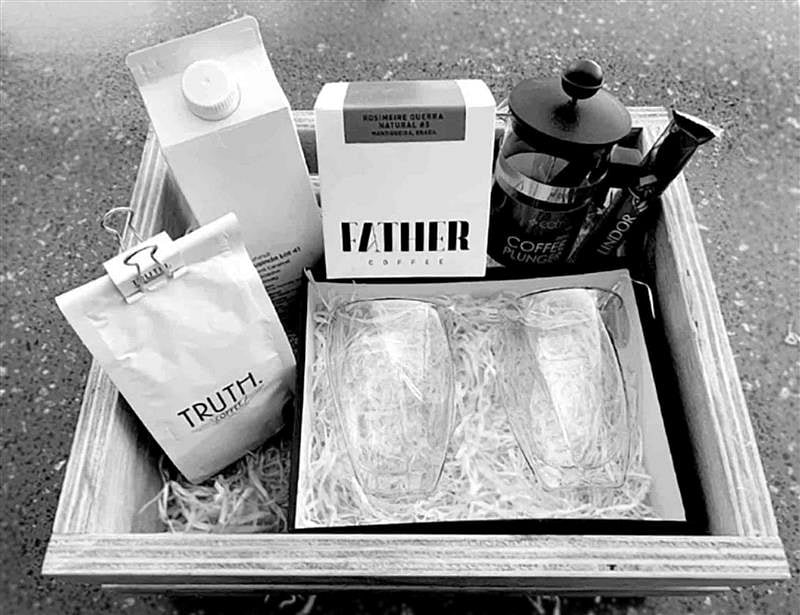What is the difference between corporate and commercial insurance?
finance
As a business owner, you'll know that protecting your insurance and all the hard work you've put into developing it is essential. What you may not know is what type of insurance your business currently needs or that its needs may evolve past what your current insurer offers. This frequently takes place when you're considering taking out commercial insurance or corporate insurance. While both options are good ones, taking out the wrong one for your needs could leave your business vulnerable or have you paying money every month towards something that doesn't benefit you. Here's what you need to know about the difference between commercial insurance and corporate business insurance and how Auto and General can help you choose the best coverage for your needs.
What is commercial Insurance and who needs it?
Commercial insurance is insurance offered to businesses to protect them from financial losses that can take place resulting from a predetermined range of circumstances. By paying a certain amount each month, the business will get a payout to recover from these circumstances, so it doesn't need to dip into its savings, downsize, default on its loans or declare bankruptcy.
Qualifying circumstances include property or building damage, liability claims raised by a supplier or client and theft of goods or equipment. If your business has assets requiring protection, this insurance will benefit it. However, different levels of coverage will be available to different industries. For example, businesses working in construction and manufacturing may be more concerned over liability claims due to the risky nature of their work while retailers and logistic companies may be more concerned over their goods being stolen in storage or transit.
Finally, businesses offering professional services, like those in the hospitality or finance industry, may be concerned about protecting their data.
What is corporate Insurance and who needs it?
As businesses grow, their obligations do too. It means they will take on more responsibility than ever — but will have a correspondingly higher profit margin. Unlike commercial insurance cover, corporate insurance covers these types of businesses and their assets by accounting for the unique risks they may face. For example, a person operating a small business baking cupcakes for customers may purchase a high-end oven — but as their product demand grows, they might purchase an industrial space with industrial ovens capable of baking hundreds of cakes at once. A person running a bed and breakfast may only see one guest at a time, while a major hotel chain can see hundreds of guests at once. A financial advisor may offer individual advice to people on how to invest their year-end bonuses, while a corporate adviser will be guiding multinationals in investing millions in profit — creating a bigger risk in terms of errors and omissions.
While corporate insurance can cover these businesses, they will also enjoy personalised coverage to meet their exact needs. What benefits one may not benefit another.
What are the benefits of a corporate insurance policy for my South African corporation?
Corporate insurance comes with an understandably higher price tag, which leads many to wonder if they can get away with commercial insurance alone. To quell that temptation, it helps to review the unique coverage it offers that other forms of insurance may not:
-
Financial — this covers losses of a purely financial nature unrelated to a claim involving injury or damage. For example, it can recover your losses should an employee offer poor customer advice that results in the customer losing money and taking legal action against the bank to recover their losses.
-
Risk — this can cover costs arising from proactively managing your business risk so you can take steps to protect yourself against potential adverse outcomes. It can also pinpoint areas you can improve to reduce your risk and by extension, your premiums.
-
Compliance — This covers the costs associated with ensuring your business remains compliant with government and industry legal and regulatory requirements. For example, your business may need to amend its IT systems, so it better protects the personal data it manages.
-
Credibility — factors outside your control can impact your business brand and impact sales. An example of this was when Stellenbosch University found that local meat suppliers were not disclosing the origins of their meat. A business impacted by decreased sales could use a corporate insurance payout to create informative ads telling customers that their meat is independently tested and verified.
-
Assurance — Corporate insurance helps assure businesses that they are covered in any eventuality. While this might not have a specific financial value, it can give investors and shareholders peace of mind in a way nothing else can.
-
Customisable coverage — Your business can face unique challenges that other businesses rarely encounter, and you can customise your coverage to include products such as business interruption insurance or group insurance to ensure this. For example, a social media platform will need to invest heavily in software and technology that protects customers' private data.
What you should know about getting corporate insurance
Here are the answers to a few frequently asked questions concerning taking out corporate insurance:
Does corporate insurance cover employees that work from home?
Your corporate insurance is customisable to your needs. While standard coverage usually does not include them, it can be arranged if needed. It is important to review the policy document or contact the insurance provider directly to determine if coverage extends to employees who work remotely from home.
How much can I customise my corporate insurance?
While certain general exclusions and waiting periods may apply, you can tailor your coverage to meet the specific needs of a business.
To customise your corporate insurance policy, it is recommended that you work with an experienced insurance broker or agent to help you assess your business's risks and recommend appropriate coverage options.
How do I know if my business needs big corporate insurance?
If your business is relatively small and has few employees, you may be able to get by with a basic business insurance policy. However, as your business grows and becomes more complex, you may need more extensive corporate insurance coverage to protect against a wider range of risks.
Get your company covered with Auto and Generals business insurance
Whether your business needs corporate insurance or commercial insurance, you will want to take your time when selecting your desired level of coverage to make sure you're fully covered and have left nothing to chance. Auto & General can guide you through this process. For enquiries about commercial insurance quotes or your group insurance benefits, why not get in touch with us today?








